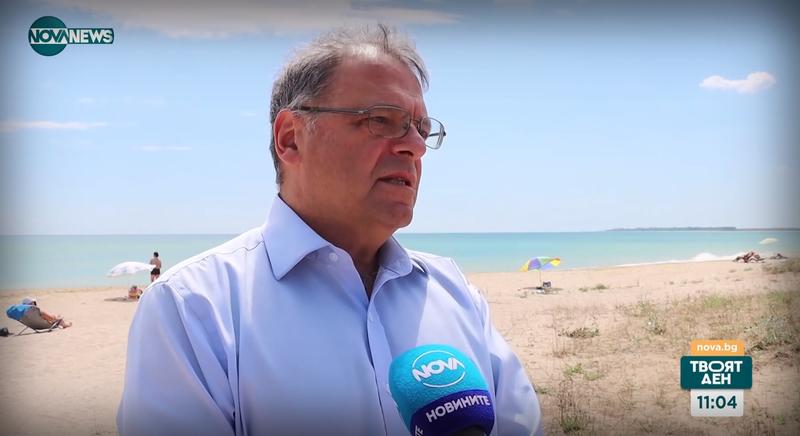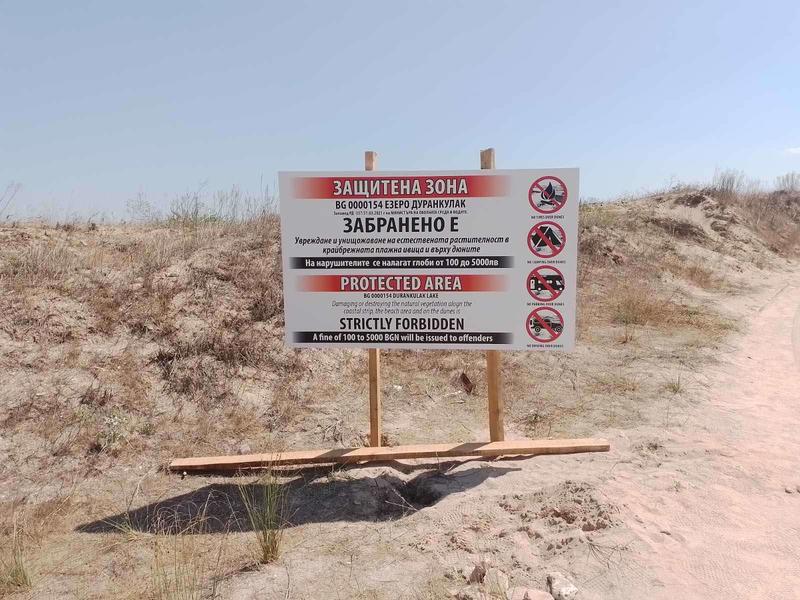The Bulgarian Black Sea coast is extremely valuable and rich in natural resources that we ought to preserve
17 Aug, 2023 | 15:02
- Minister Julian Popov: “Part of the struggle is simply for people to understand the value of dunes. We cannot drive jeeps over them, park on them, and put caravans. We have to protect them.”
Signs do not solve problems but point at them. This was stated by the Minister of Environment and Water in the morning talk show on BTV in respect to the measures for dunes protection.
He emphasized that the placement of signs in Durankulak is part of a very long struggle that will be won. “Part of that struggle is simply to make people understand the value of dunes. We cannot drive jeeps over them, park on them, and put caravans. We have to protect them. It is not only the dunes, the Bulgarian Black Sea coast is extremely valuable and rich in natural resources, which we ought to preserve if we want to protect our nature, but also have an economy around the Black Sea, which is of better added value, with a better product and to have a better quality of life”, the Minister is convinced.
“The monitoring shows that there is no pollution in the Black Sea as a result of the explosion of the Nova Kakhovka dam.” This is quite a logical conclusion, since “Nova Kakhovka” is a very large dam - 27 times the size of the Iskar dam. Although the drinking water, coming down, dragged houses and rubbish, it did not reach Bulgaria, it was pushed inwards by the Danube, and after two months it was completely dispersed and absorbed inward into the sea. The risk itself was very low. We are monitoring not only the state of the sea, but also the risk within the next 5-7 days,” noted Julian Popov.
The minister pointed out that air quality in Bulgaria is improving, although not at the necessary pace. He called for the replacement of heating appliances and second-hand cars.
“The state can do little for coal plants, because the market to a very large extent currently determines their fate,” said Minister Popov and noted that Bulgaria is the country with the largest drop in carbon emissions in the first quarter within the European Union. “It’s simply because last year and the year before electricity prices were very high, all the plants were working at maximum capacity, but the prices fell. This is the likely trend going forward, they simply will not be able to survive economically on the market,” explained the environmental minister.
The entire interview can be viewed here.


